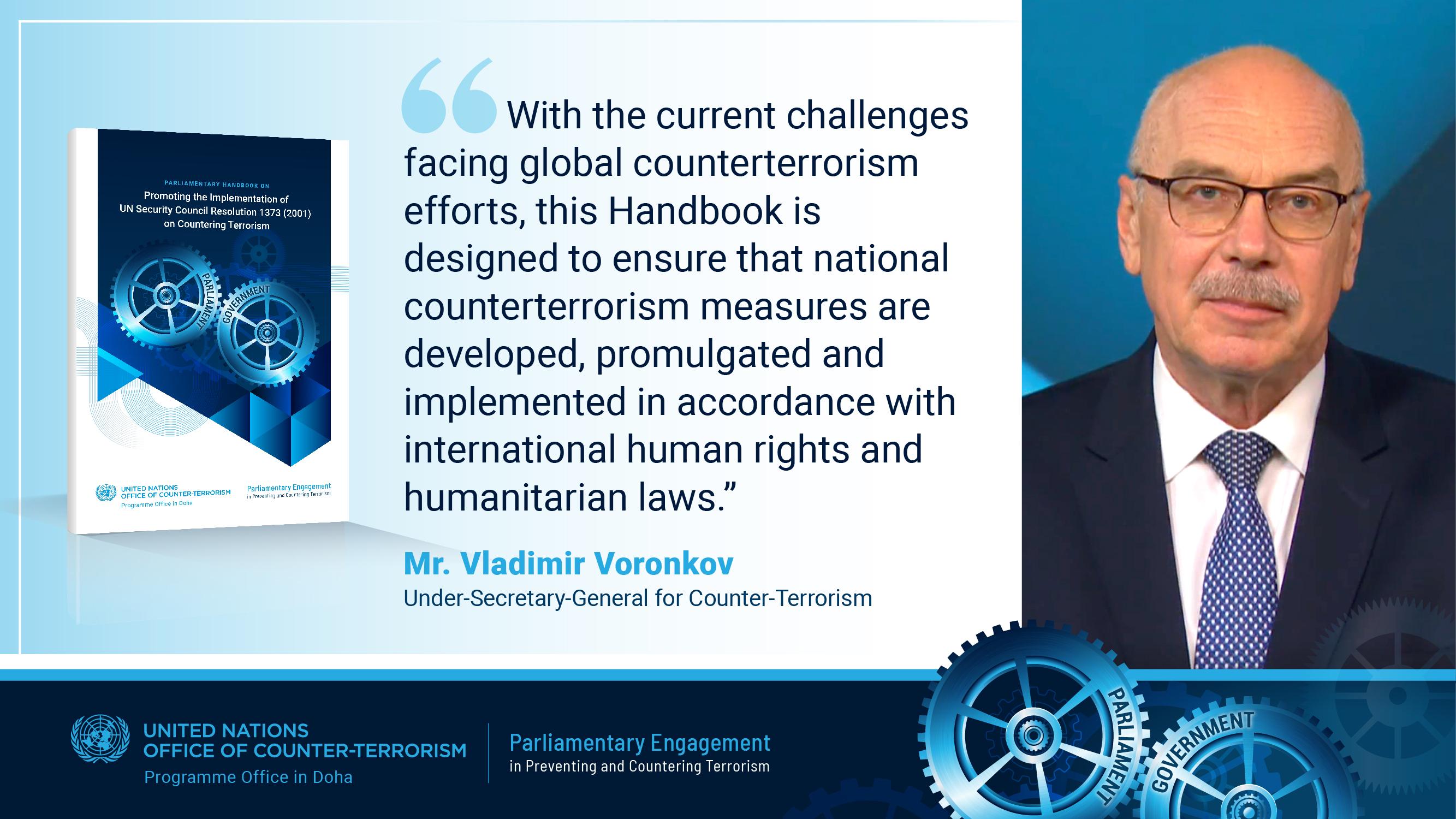Parliamentarians gather in Istanbul for Counter-Terrorism Meetings and Launch of new Handbook

Parliamentary Assemblies from around the world met in Istanbul to participate in the Fifth Counter-Terrorism Coordination Meeting, organized by the United Nations Office of Counter-Terrorism (UNOCT) Programme Office on Parliamentary Engagement with the support of the Shura Council of the State of Qatar, and in cooperation with the Organization for Security and Cooperation in Europe Parliamentary Assembly (OSCE PA).
The event is the latest in a series of regular parliamentary meetings aimed at enhancing collaboration among parliamentary assemblies on counter-terrorism and preventing and countering violent extremism (PCVE). More than 80 participants from 18 parliamentary assemblies from Africa, Asia, Europe, Latin America, and the Middle East attended the hybrid meeting.
During the event, UNOCT launched its new Parliamentary Handbook on the UN Security Council Resolution 1373 (2001). This Handbook serves as a reference tool for parliamentarians as they set out to propose, discuss, amend, and adopt legislation and national strategies related to countering terrorism and violent extremism conducive to terrorism in all its forms. It also provides an overview of the available opportunities for technical assistance in support of Member States’ implementation of Security Council resolution 1373 (2001) and other resolutions focused on global cooperation to counter the scourge of terrorism.
The meeting of Parliamentary Assemblies continues tomorrow with the Third Parliamentary Policy Dialogue dedicated to the Protection of Religious Sites, Symbols and Objects.
Participants will share experiences on existing legislative practices on the protection of religious sites and symbols; and review the relevant recommendations and practices by international organizations on the protection of vulnerable targets, religious sites, symbols, and objects. The participants will also explore areas of potential collaboration between parliamentary assemblies, parliamentarians, the United Nations and other international organizations on the protection of vulnerable targets.
Useful Resources
- Statement: Opening remarks by Mr. Vladimir Voronkov, Under-Secretary-General for Counter-Terrorism on the launch of the Parliamentary Handbook on the UN Security Council resolution 1373 (2001)
- Press releases:


